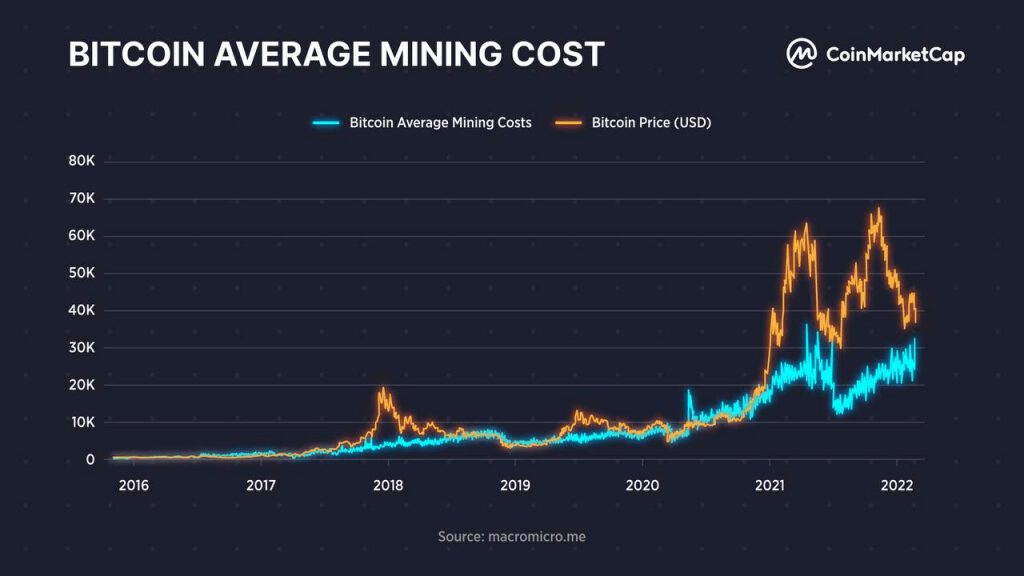Macro trends are continuing to push down on Bitcoin‘s price action, as the top cryptocurrency fell over 8% since news of Russian “military operations” against Ukraine broke. In fact, the king coin saw liquidations exceeding $242 million. Overall, BTC’s price has been on a downward spiral for the past few weeks. Thus, resulting in a loss of 20% of its valuation in just the past seven days.
Enthusiasts, however, could view this as a buying opportunity, as the digital asset’s price appears to be approaching bottom levels, and one way to predict the same is through analyzing how miners are doing in these tumultuous times. For instance, Bitcoin’s average mining cost can be compared to its current price to get an idea of how profitable production is at current levels.
Well, not so much it seems, as Bitcoin’s price appeared to be merely 16% higher than the average cost of mining the cryptocurrency, CoinMarketCap noted in a recent blog post, adding,
“Throughout almost all of Bitcoin’s lifetime, the average mining cost has sat significantly below the average market price of Bitcoin.”
However, a silver lining can be found in the fact that a few times that the mining cost has exceeded BTC’s price in the past, the digital asset has rallied strongly. This has resulted in temporary price peaks where the cost of mining is several times lesser than BTC’s price.
The cost of mining is also being pushed higher due to more miners entering the space, resulting in greater mining difficulty and falling revenues. However, CMC noted that further price action can be determined by the choices miners make when the cost of production exceeds the asset’s price. They can either sell at a loss, hold their coins or scale back their mining activities, the aggregate of which “may contribute to the price rally seen shortly after.”
Recent data by Glassnode indicates that they are going with the second option, as miners could be seen selling off their tokens after being net holders since September.
However, this would be an expected outcome, considering the steep fall in miner revenue that can be noticed since late October, when it stood at a high of $747.4 million per day. Compared to that, total miner revenue per day stood at $208.5 million at the time of writing, after falling 40.26% over the past year.

Source: YCharts
At the same time, competition has grown fiercer ever since Bitcoin gained larger acceptance and China ceased to be the mining capital last year. Bitcoin’s hash rate has continually been touching all-time highs, and quadrupling in just the past six months, meaning more participants are engaging in mining operations to power the cryptocurrency’s network.

Source: YCharts
While a definite price bottom can only be established once miner profits erode completely, their frustration has been evident lately, and sustained selling pressure from miners could also result in a bearish trend going forward.



